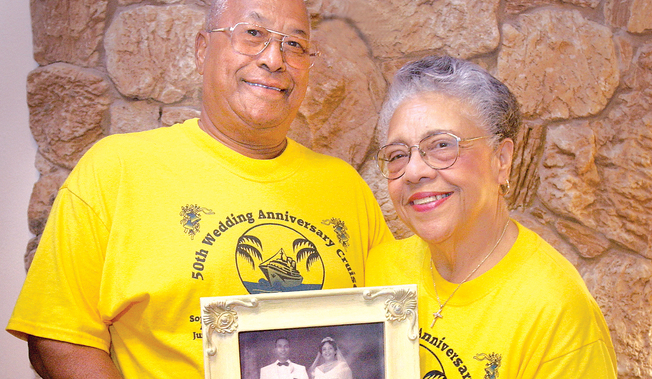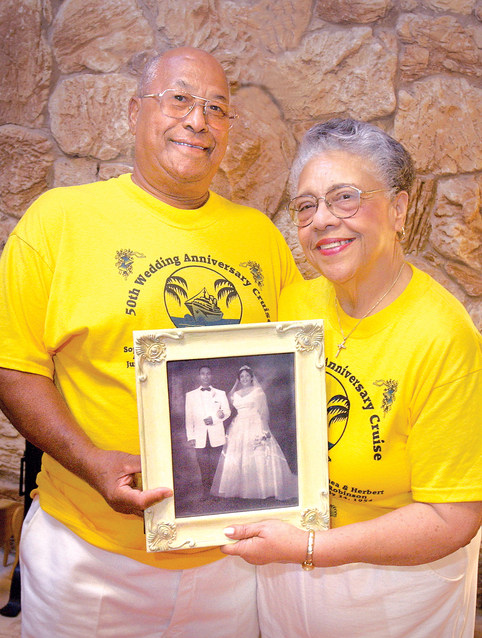
A platform that encourages healthy conversation, spiritual support, growth and fellowship

NOLACatholic Parenting Podcast
A natural progression of our weekly column in the Clarion Herald and blog

The best in Catholic news and inspiration - wherever you are!
Black Catholic heroes: Sophie Watts Aramburo
-

This month the Clarion Herald profiles four black Catholics who have had a major impact on the Archdiocese of New Orleans. We have profiled Dr. Norman C. Francis and A.P. Tureaud Sr. over the last two days. Today: Sophie Watts Aramburo
Sophie Watts Aramburo retired in 1998 as associate director of the archdiocesan Office of Black Catholic Ministries, and she called her 8 1/2 years of service “a real blessing to me.”
“I’ve enjoyed the work I’ve done and I’ve met so many wonderful people and been exposed to so much,” said Aramburo, a member of Holy Ghost Parish.
The highlight of her service was promoting the National Black Catholic Congress in New Orleans in 1992. She served as the regional coordinator for the Congress since 1987. She also coordinated the annual archdiocesan Black Saints Celebration.
“I think the office has helped make people more aware of the presence of African Americans in the Catholic Church,” she said. “We have been able to bring our gifts and talents to the liturgy and to the community as a whole to take care of not only pastoral issues but also social justice issues.”
In her home parish, Aramburo was an extraordinary minister of holy Communion, lector and member of the senior citizens board. Even in her retirement, she continued to work on evangelization projects. The Office of Black Catholic Ministries named its “Servant Leader Award” in her honor in 2016.
Aramburo also was named by Archbishop Philip Hannan to the Archdiocesan School Board. At the time she was a reading laboratory teacher at Clark Senior High School. She also served as Grand Lady of the Knights of Peter Claver Ladies Auxiliary, Court 21.
In 1985, after 20 years making Cursillo retreats, she became the first woman to serve as president of the Archdiocesan Cursillo Board.
 In 2004, when Aramburo and her husband Alvin celebrated their 50th wedding anniversary, they recalled in the Clarion Herald’s bridal section how different the world was when they married in 1954.
In 2004, when Aramburo and her husband Alvin celebrated their 50th wedding anniversary, they recalled in the Clarion Herald’s bridal section how different the world was when they married in 1954.With its segregated hotels and restaurants, the Deep South presented incredible challenges to African-American newlyweds who wanted to motor off on their honeymoons. Those trips had to be planned as carefully as their wedding ceremonies.
It would be 10 more years before the passage of the Civil Rights Act of 1964 that outlawed segregation in public establishments. The Aramburos relied on “The Negro Motorist Green-Book,” a guidebook published from 1936 to 1963, which listed roadside accommodations that served African Americans.
The Aramburos drove from New Orleans to Pass Christian, Mississippi, about 50 miles away, and stayed at Miss Carrie’s Honeymoon Cottage.
“Miss Carrie was a funny little lady,” Sophie recalled. “She wouldn’t let you rest until you signed her guest book. She only took one couple at a time. So many couples used her home for their honeymoon that the bed had a big sinking spot in the middle.”
Alvin had a different memory: “The cottage had a tin roof, and you could really hear the rain,” he said. “When we tell this to our kids, they all laugh at us.”
Sophie died in 2009 at the age of 77.
Father Daniel Green, current director of the Office of Black Catholic Ministries, said: “Miss Sophie’s signature message was ‘we’ve seen it; we’ve heard it; now let’s do it. Let’s do it today!’”




